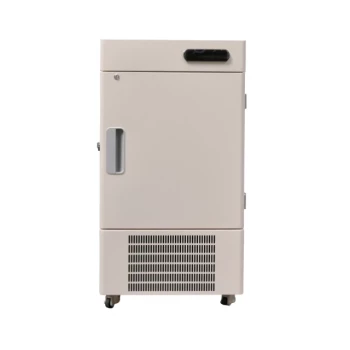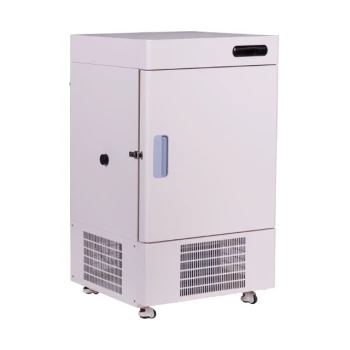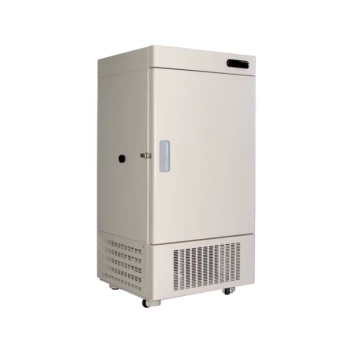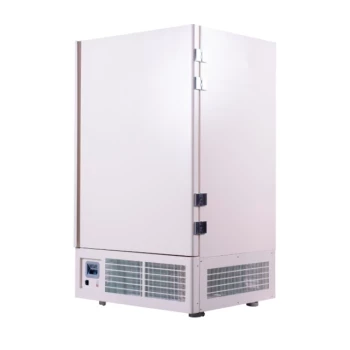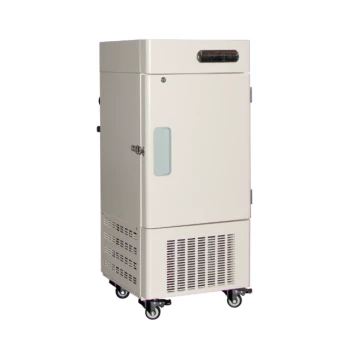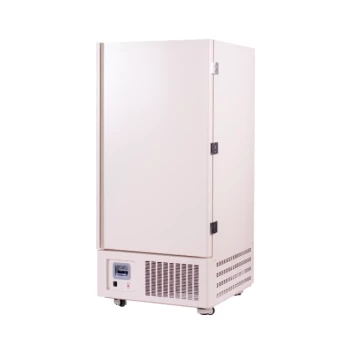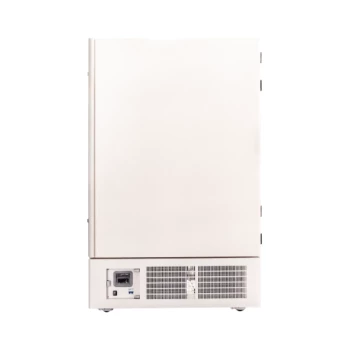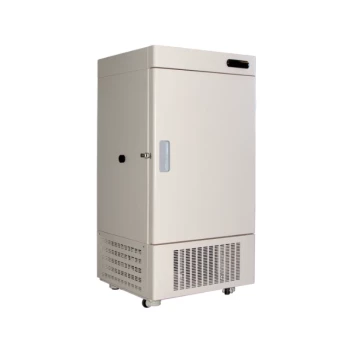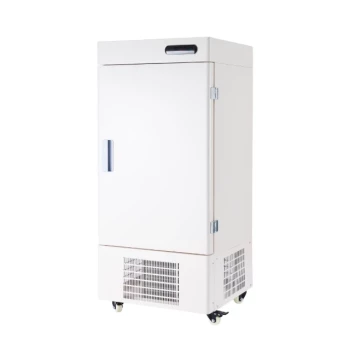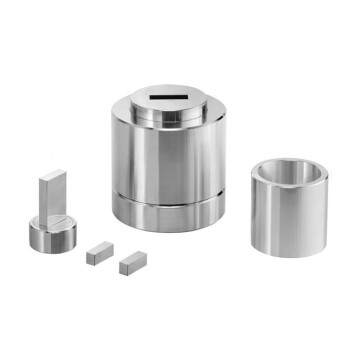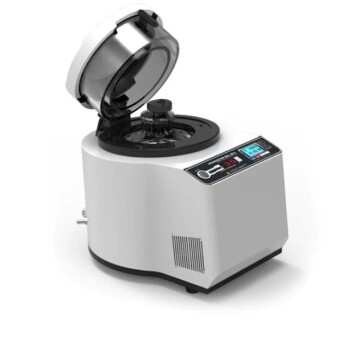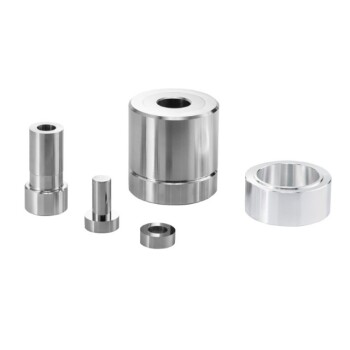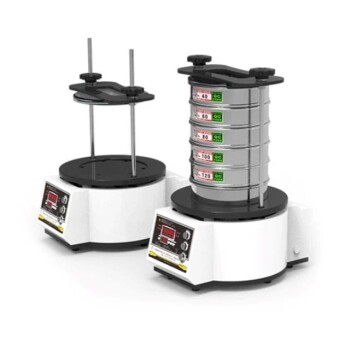At its core, maintaining ultra-low temperatures for biological samples is the only reliable method for pausing biological time. This process, known as cryopreservation, effectively stops the molecular and enzymatic activity that causes degradation, preserving the integrity, function, and viability of specimens for future research, diagnostics, and therapeutic use.
The fundamental challenge in preserving biological material is that life is a process of constant change and decay. Ultra-low temperatures are not just about making things cold; they are about bringing all biological processes to a virtual standstill, preventing any further change from occurring.
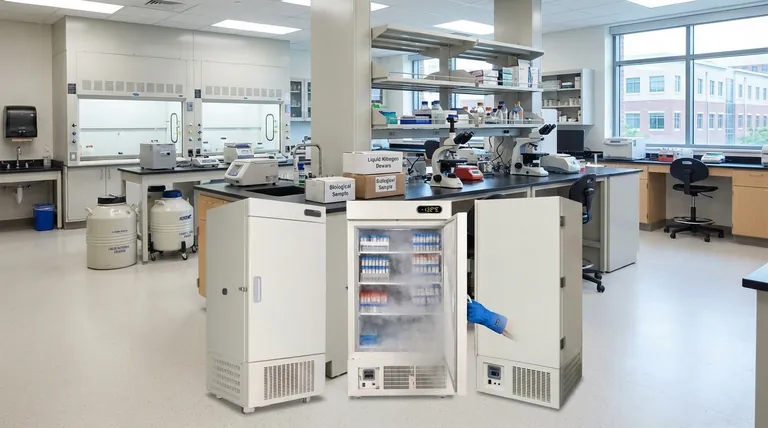
The Science of Biological Standstill
To understand the importance of extreme cold, we must first understand the mechanisms that destroy biological samples at a microscopic level, even when frozen.
Halting Enzymatic and Metabolic Activity
All biological decay is driven by enzymes and metabolic reactions. While standard freezing slows these processes, it does not stop them entirely.
At temperatures around -20°C or even -80°C, residual molecular motion allows some enzymatic activity to continue over long periods, slowly degrading proteins, nucleic acids, and cellular structures.
Only by reaching ultra-low temperatures, typically below -130°C, is molecular motion reduced to a point where these destructive processes effectively cease.
Preventing Ice Crystal Damage
When water freezes slowly, it forms large, sharp ice crystals. These crystals act like microscopic daggers, physically piercing and shredding cell membranes and organelles.
This physical damage is irreversible and is one of the primary reasons improperly frozen cells are no longer viable upon thawing.
Cryopreservation aims to cool samples so rapidly that water molecules do not have time to organize into large crystals. Instead, they become locked in a disordered, glass-like state known as vitrification, which preserves cellular structure.
The Glass Transition Temperature
The critical threshold for long-term preservation is the glass transition temperature of water, which is approximately -132°C.
Below this temperature, water behaves like a solid glass, and molecular diffusion is virtually zero. This ensures that even over decades, there is no risk of ice crystals growing (a process called recrystallization) or biochemical degradation occurring.
This is why storage in liquid nitrogen, which maintains a stable temperature of -196°C, is the gold standard for preserving valuable and irreplaceable cells.
The Consequences of Temperature Instability
Even minor deviations from the target ultra-low temperature can have catastrophic consequences for sample integrity.
The Danger of Thaw-Refreeze Cycles
Every time a sample's temperature rises, even slightly, molecular activity can resume. If the temperature rises above the glass transition point, small ice crystals can begin to merge and grow into larger, more damaging ones.
This means that repeated, minor temperature fluctuations—such as those from opening a freezer door—can incrementally destroy a sample over time.
Loss of Sample Viability
For applications requiring living cells, such as in-vitro fertilization (IVF), stem cell therapy, or cell-based research, viability is paramount.
Improper freezing or temperature instability directly leads to cell death. This renders the samples useless for their intended therapeutic or experimental purpose, representing a significant loss of time, resources, and clinical opportunity.
Compromised Data and Diagnostics
In research and diagnostics, the goal is to analyze a sample as it was at the moment of collection.
If a sample degrades during storage, the proteins, RNA, or metabolites being measured may change or disappear. This leads to inaccurate data, unreliable diagnostic results, and non-reproducible experiments.
Matching Storage to Your Objective
Choosing the correct storage temperature is a critical decision that depends entirely on the nature of your sample and your long-term goals.
- If your primary focus is short-term storage of robust molecules like DNA or certain proteins: Storage at -80°C may be sufficient, as these molecules are less susceptible to structural damage.
- If your primary focus is the long-term viability of living cells (e.g., stem cells, gametes, or cell lines): Cryopreservation in liquid nitrogen (-196°C) is the only acceptable method to prevent ice crystal damage and guarantee functionality upon thawing.
- If your primary focus is preserving the precise state of sensitive biomarkers for analysis: Ultra-low temperatures are essential to create a stable, unchanging baseline and ensure your results reflect the true biological state at the time of collection.
Ultimately, precise temperature control is the foundation upon which reliable biological science and medicine are built.
Summary Table:
| Temperature | Primary Impact | Suitable For |
|---|---|---|
| -20°C | Slows degradation | Short-term storage of stable reagents |
| -80°C | Slows most enzymatic activity | Short-term storage of DNA, proteins |
| Below -130°C | Halts all molecular motion & decay | Long-term preservation of living cells, sensitive biomarkers |
| -196°C (Liquid N₂) | Gold standard for complete stasis | Irreplaceable cells, gametes, stem cells, long-term biobanking |
Ensure the integrity of your most valuable biological samples.
Fluctuations in temperature can compromise years of research or render critical therapeutic cells non-viable. KINTEK specializes in reliable ultra-low temperature storage solutions, including liquid nitrogen tanks and ultra-low freezers, designed to provide the stable cryogenic environment your work demands.
Don't leave your samples to chance. Contact our experts today to find the precise preservation equipment that meets your laboratory's specific needs.
Visual Guide
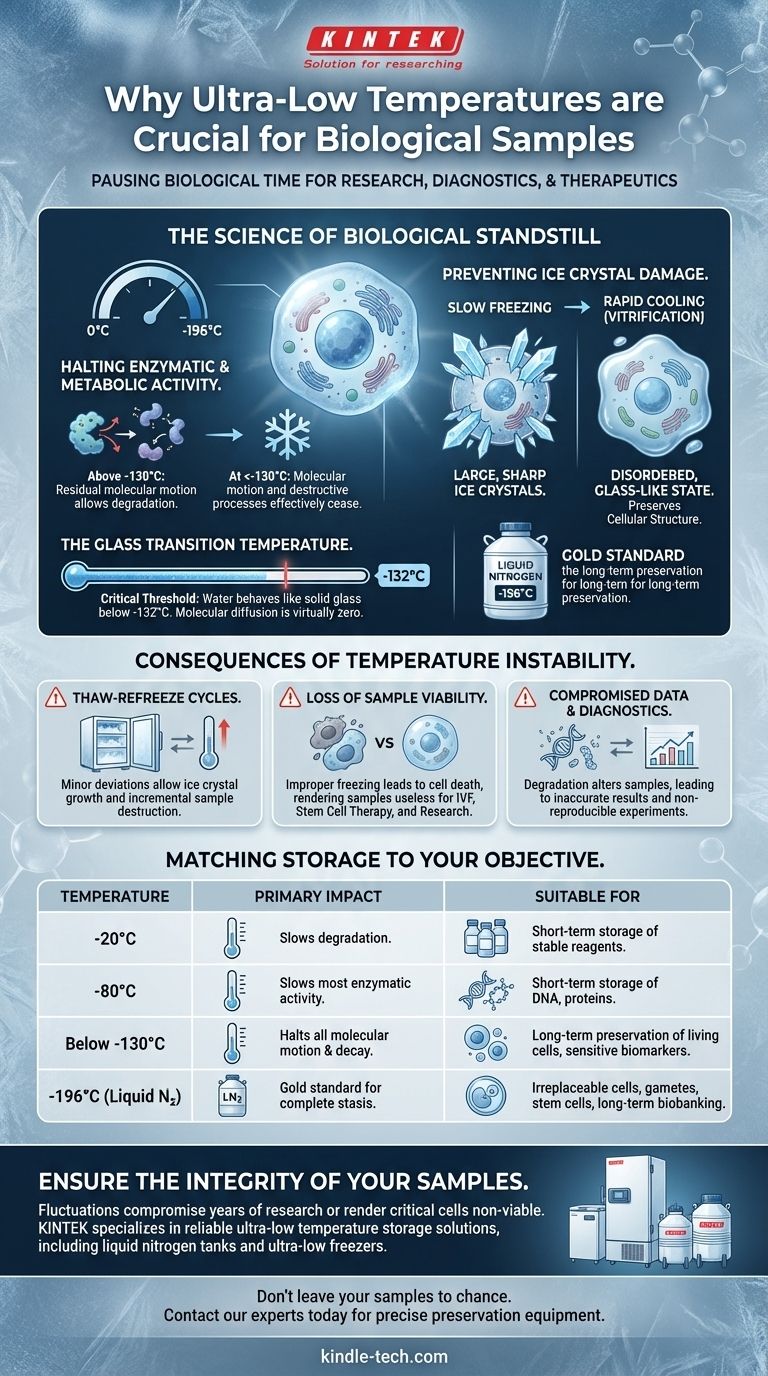
Related Products
- 58L Precision Laboratory Ultra Low Temperature Upright Freezer for Critical Sample Storage
- 108L Vertical Ultra Low Temperature ULT Freezer
- 508L Advanced Vertical Ultra Low Temperature Freezer for Critical Laboratory Storage
- 708L Ultra Low Temperature Freezer High Performance Laboratory Freezer
- 208L Advanced Precision Laboratory Ultra Low Temperature Freezer for Cold Storage
People Also Ask
- What is the temperature control capability of ultra-low freezers? Precise Stability Down to -86°C
- How do ultra-low temperature freezers work? Unlocking the Secrets of -86°C Sample Preservation
- What is the role of an ultra-low temperature (ULT) freezer in the freeze-thaw synthesis of hydrogel nanocomposites?
- How do ultra-low temperature freezers achieve such low temperatures? The Science Behind -80°C Cooling
- What are the recommendations for storing mRNA vaccines in ultra-low temperature freezers? Ensure Absolute Stability at -80°C
